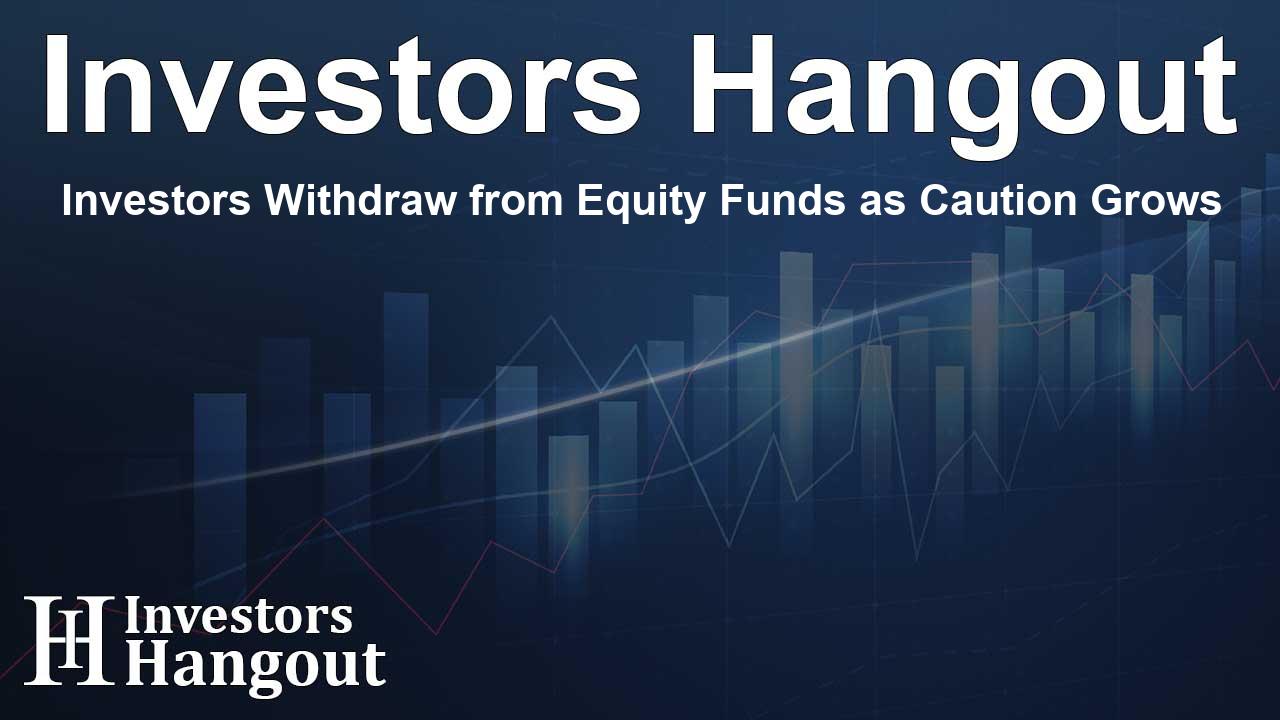Investors Withdraw from Equity Funds as Caution Grows

Investors React to Market Conditions
In a striking display of caution, global equity funds experienced significant outflows recently, marking the fastest rate of liquidation in 15 years. This surge in withdrawals comes as investors brace for a potentially hawkish stance from the U.S. Federal Reserve following a recent rally in the stock market.
Magnitude of Withdrawals
According to data from LSEG Lipper, investors withdrew a staggering net total of $37.22 billion from global equity funds in a single week, the highest weekly outflow since September 2009. Such dramatic actions reflect the heightened wariness among investors regarding future market conditions.
Federal Reserve's Influence
On a recent Wednesday, the Federal Reserve announced a widely anticipated rate cut while hinting at fewer short-term rate reductions going forward. Additionally, the Fed projected a rise in inflation for the upcoming year, leading to a sell-off in global equities. Chair Jerome Powell's comments reinforced the need for caution in the current climate.
Impact on Global Markets
This sentiment has led to declines across major indices, with the MSCI World index falling over 3% this week alone, positioning it for the steepest decline in three and a half months. Such market shifts underscore the growing impact of investor sentiment on stock performance.
U.S. Equity Funds Lead the Way
U.S. equity funds faced the brunt of this investor withdrawal, with sales hitting $50.2 billion — the largest in over a decade. Conversely, European and Asian equity funds witnessed net purchases, with net increases of $9.21 billion and $1.74 billion, respectively, highlighting a divergence in investor behavior across regions.
Selling Across Sectors
Sector-specific funds were not spared in this sell-off, introducing the largest weekly outflow in 14 weeks, totaling $2.65 billion. The technology and healthcare sectors faced the most significant losses, with net disposals of $1.37 billion and $737 million, respectively. These trends portray a possible shift in investor focus as they reassess their sector allocations.
Bond Funds and Money Markets Remain Attractive
Interestingly, while equities faced heavy selling pressure, global bond funds have continued to receive interest from investors, marking 52 consecutive weeks of net purchases. Although securing about $2.36 billion in inflows this week, this amount is the lowest seen in the past eight months.
Substantial Inflows into Corporate and Loan Funds
Corporate bond funds and loan participation funds emerged as notable beneficiaries, attracting inflows of $2.01 billion and $1.12 billion, respectively. However, government bond funds reported outflows of $594 million for the third week in a row, signaling some shifts in investment priorities.
Challenges in the Commodities Sector
In the commodities arena, the outlook appeared bleak with gold and precious metal funds witnessingsubstantial withdrawals of $1.67 billion, marking the most significant outflow since July 2022. Additionally, energy funds recorded outflows of $215 million, reflecting broader challenges in this sector.
Emerging Markets Under Pressure
Emerging market equities faced intensified selling, with equity funds suffering their sharpest net outflow in over a year at $5.27 billion. Correspondingly, bond funds also recorded $710 million in outflows, indicating a comprehensive retreat from riskier assets.
Investors Adjust Strategies Amid Uncertainty
This recent trend of withdrawals from equity funds may compel investors to reassess their strategies in a more volatile environment. As market conditions continue to evolve, the importance of dynamic portfolio management becomes increasingly evident. Investors will need to navigate these shifts carefully while keeping an eye on both risks and opportunities.
Frequently Asked Questions
What are the reasons behind the recent outflows from equity funds?
Investors are becoming increasingly cautious amid expectations of a hawkish Federal Reserve and overall market volatility.
How significant were the recent withdrawals from equity funds?
Investors liquidated a net $37.22 billion from global equity funds, the largest weekly outflow since 2009.
Which sectors faced the most significant outflows?
The technology and healthcare sectors saw the largest disposals, with net outflows of $1.37 billion and $737 million, respectively.
Are bond funds attracting investor interest?
Yes, global bond funds have seen continued inflows for 52 consecutive weeks, although recent totals have decreased.
What is the outlook for emerging market equities?
Emerging market equity funds recorded their sharpest net outflows in over a year, suggesting increased selling pressure in this area.
About Investors Hangout
Investors Hangout is a leading online stock forum for financial discussion and learning, offering a wide range of free tools and resources. It draws in traders of all levels, who exchange market knowledge, investigate trading tactics, and keep an eye on industry developments in real time. Featuring financial articles, stock message boards, quotes, charts, company profiles, and live news updates. Through cooperative learning and a wealth of informational resources, it helps users from novices creating their first portfolios to experts honing their techniques. Join Investors Hangout today: https://investorshangout.com/
Disclaimer: The content of this article is solely for general informational purposes only; it does not represent legal, financial, or investment advice. Investors Hangout does not offer financial advice; the author is not a licensed financial advisor. Consult a qualified advisor before making any financial or investment decisions based on this article. The author's interpretation of publicly available data shapes the opinions presented here; as a result, they should not be taken as advice to purchase, sell, or hold any securities mentioned or any other investments. The author does not guarantee the accuracy, completeness, or timeliness of any material, providing it "as is." Information and market conditions may change; past performance is not indicative of future outcomes. If any of the material offered here is inaccurate, please contact us for corrections.